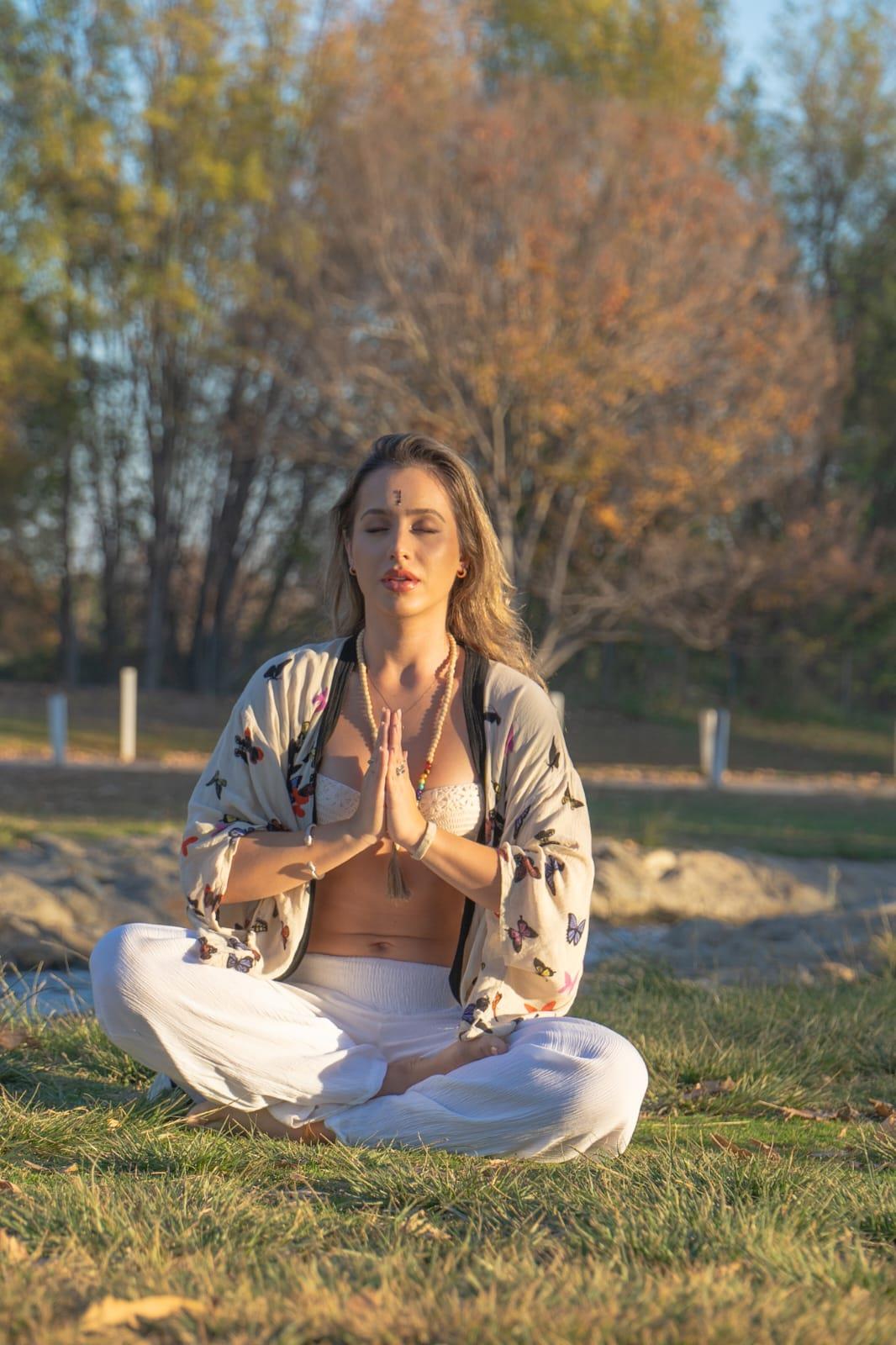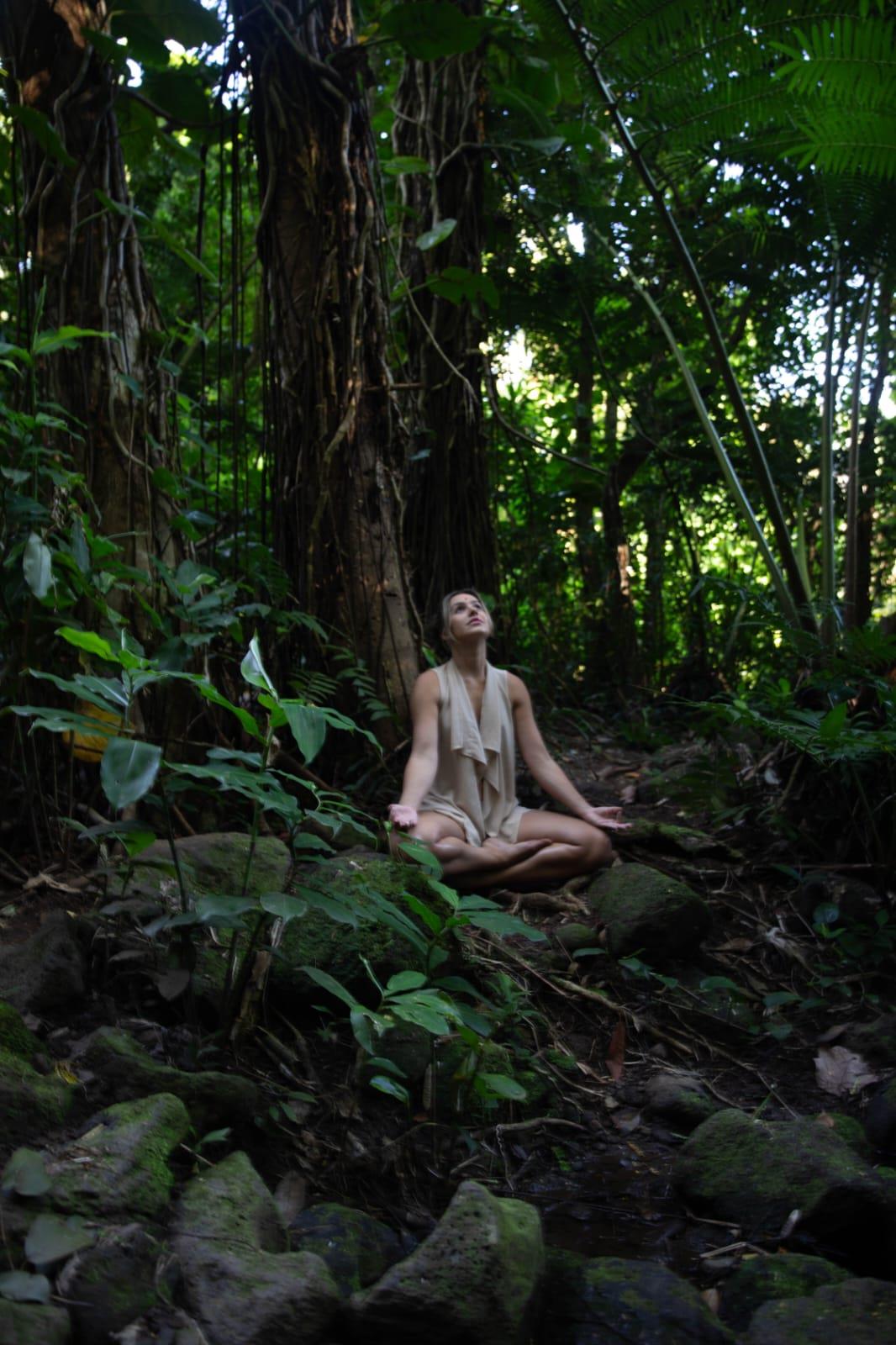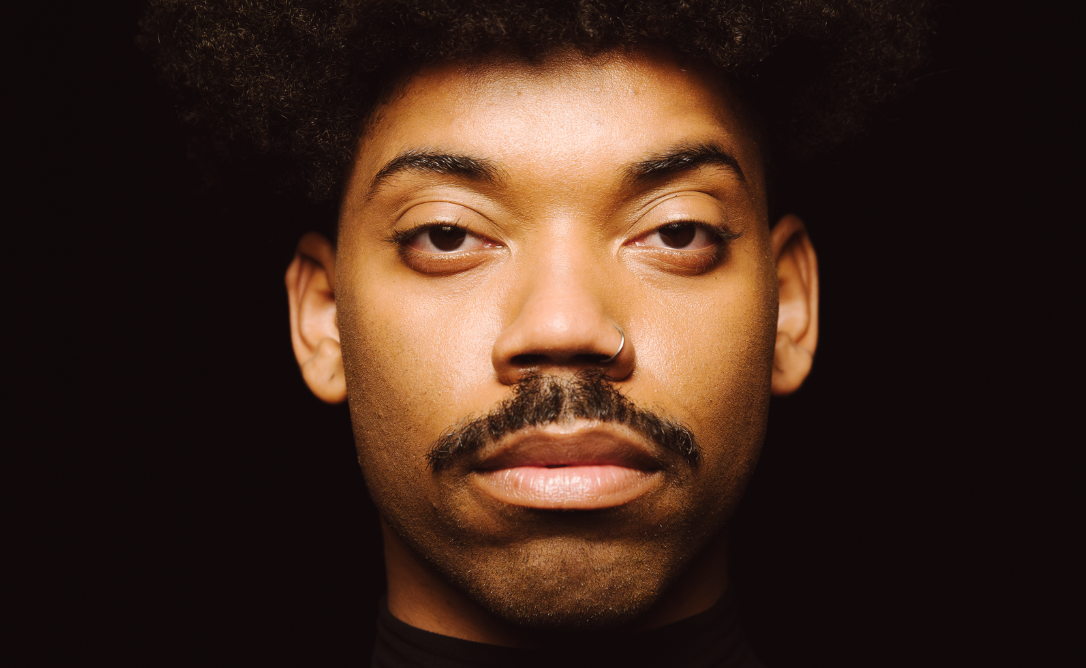Far beyond sexuality, Tantra is, for therapist Fernanda Zorzo , “a full authorization of pleasure that uses the body as a means of transcendence.” Creator of the Heaven Tantra project, she has been promoting this philosophy at international festivals such as Burning Man and recently led an immersive retreat in Rio Grande do Sul, from October 24th to 26th, bringing together practices of self-knowledge, spirituality, and connection with the body and nature.
With over a decade of experience, Fernanda has been deconstructing taboos and myths surrounding Tantra, demonstrating that the practice is much more than erotic massage or pleasure rituals. The therapist, who has appeared on productions such as the American reality show “The Retreat USA,” applies the method as a tool for healing and reconnection. During the retreat, participants experienced tantric techniques, meditations, shamanic rituals, and sensory experiences surrounded by nature, in a space designed for balance, lightness, and introspection.
You often say that Tantra is “a complete authorization of pleasure.” Looking back, at what point in your own journey did you feel you had truly authorized yourself to experience pleasure without guilt?
It would be hypocritical to say that there was a single event that completely freed me from guilt in all areas of my life. But I can say that, after Tantra, I recognize much more clearly the bonds that bind me—guilt, fear, control—and I can free myself from them more quickly. Today, I am aware of when I am moving away from pleasure, happiness, and my essence… and I use tools like mindfulness and tantra to return to vibrating at my maximum potential more quickly.
Your first experience with Tantra came while you were still in engineering school. What was the clash like between the logical thinking of science and the intuitive delivery of this philosophy? Do they still coexist within you?
It was a huge shock—and, paradoxically, one of the greatest blessings. I think this logical foundation is what allowed me to translate Tantra in a way that’s accessible to all my students, even the most skeptical.
In my early experiences, I was very uninvolved, yet I felt benefits that completely defied the logic I knew. And when I began leading processes and witnessing transformations in thousands of people, I realized there was no longer room for skepticism—only for gratitude and reverence. Against facts, there are no arguments.

You mention that the body stores pain and memories that the mind forgets. Is there a story of transformation from a student or patient that has impacted you to the point of changing the way you view Tantra?
The mind’s role is to protect us, so it’s common for it to erase or distort painful events. What many people don’t realize is that the body keeps these memories alive—and only understands this when it’s experienced.
I remember a woman who carried a deep wound of paternal abandonment, but was unclear about her story and how the events unfolded. During a women’s experience, she had a very specific memory—which was later confirmed by her mother, including the revelation that the father who registered her was not her biological father. That was over ten years ago, and I still get emotional when I remember it.
There are also many cases of people remembering abuse or unresolved situations during the practices—it’s powerful, but also deeply healing. I like to point out that for others, it’s not as specific as remembering, feeling, or reliving a memory completely, but the body still releases these tensions in a less logical, but still powerful way.
You’ve lost jobs and been judged for practicing Tantra. Today, when you see this topic being discussed at festivals, reality shows, and public debates, do you feel that prejudice has diminished or simply changed in form?
Prejudice has diminished, but very slowly—and often it only changes its appearance. Today, there’s more curiosity, but there’s still resistance, both social and institutional. I believe that those who work seriously with Tantra need to come together to spread this philosophy in the best possible way.
Seeking Tantra should be seen as an act of courage—of someone who is willing to break through their own barriers to become a more vulnerable, but also more authentic and powerful version of themselves.
I enjoy entering and conquering “not-so-easy” spaces. I think that after having practiced tantra for several years in a multidisciplinary team, both practical and academic, with psychologists, gynecologists, urologists, psychiatrists, and many even with PhDs, it gave me great strength to pursue this purpose, not only to spread this philosophy that I love and believe in so much but also to unravel many misconceptions about it. It’s always a challenge to make tantra understood and respected in environments where there is still so much prejudice, but it is precisely in these environments that I insist on entering. I know there are gaps where tantra is even more necessary.

At Burning Man and “The Retreat USA,” you demonstrated that Tantra can exist even without nudity or touching. What does this reveal about the true nature of this practice and what people are truly looking for when they come to you?
It reveals that Tantra is much deeper than most people imagine. It’s not about sex or nudity—it’s an ancient philosophy that works on healing, awareness, and presence through different pathways. I’m very proud to showcase this in spaces like Burning Man: Tantra that fires the soul, not the body.
There I plant a seed of curiosity, trust, and love—and show that pleasure can arise from presence, not exposure.
What people are really looking for when they come to me varies greatly, truly. Some people have known my work for years and take a while to “build up the courage” to attend an event until they’re recommended by health professionals. Many try to explain right away upon arrival that they don’t understand anything about it, that they haven’t done much research, that they have fears but won’t share their true reasons… and honestly, there’s no need to express them because, in any case, they’ll be working on exactly what’s needed and how it should be done—even if the person leaves surprised to have gone for a reason and improved in many other areas of their life that they never expected. The same goes for couples.
You stated that “society has no interest in happy people because they consume less.” When did you realize that pleasure could also be a political act, not just a personal one?
I noticed it first within myself. When I began to free myself from social constraints and access a more internal pleasure, my relationship with everything changed—with myself, with my body, with others, and with the world.
And then, seeing the same thing happen to so many people, I understood how political this is.
A free and happy person consumes less, depends less, and submits less. The pleasure that comes from within is revolutionary because it is self-sustaining.
Tantra awakens a beautiful inner strength, teaching us to navigate and honor light and shadow, and to love our story. Understanding ourselves as complete and sufficient beings makes us better for ourselves and the world, learning to be vulnerable, embracing ourselves more… all of this leads to fewer quick and superficial “solutions.” It’s not good business for capitalism, but it’s great business for a more balanced and healthy society.

The “Mountain of the Moon” retreat blends tantric, shamanic, and indigenous traditions. What kind of transformation do you hope to provoke in those who participate—and what does this encounter represent for your own journey?
This retreat represents a new phase of my work, where I bring Tantra as a source of health, well-being, and happiness. I combine practices that I’ve not only studied but have also transformed me over the last decade, bringing them with a more natural yet intense approach.
The shamanic traditions I include are substance-free but extremely powerful. The Temazcal, for example, is a deeply purifying experience—it reconnects with the earth and the body, with humility and strength at the same time. This year, I went to Tepoztlan, Mexico, to have an exclusive Temazcal experience with a shaman there. If I hadn’t believed in the power and transformation of this experience, I wouldn’t have gone so far, much less added it to the itinerary of the retreat I’ll be leading.
I see many professionals from different fields trying to defend as good only what they do, I have the humility and experience to add everything that will add to the result: it’s not about me, it’s about transforming in the best way the lives that will be in my hands during that period.
For those who still view Tantra with suspicion, what would be the first step — the simplest gesture — to begin reconnecting with one’s own body and transforming pleasure into self-knowledge?
The first step is to seek out experiences led by professionals who prioritize the well-being and emotional safety of participants—not just following protocols.
When it comes to sexuality and vulnerability, the essential thing is acceptance, respect, and freedom.
Nothing is mandatory in true Tantra. The only invitation is to be present—with your body, your breath, and your feelings.
The first step is to recognize that you have a beautiful path full of possibilities, and that the invitation is a full authorization to enjoy and be your happiest self. Without fear, guilt, or judgment… Don’t compare your journey to anyone else’s; invite yourself to live more fully in the present. Having good guidance in this process makes it even more powerful and pleasurable.
Follow Fernanda Zorzo on Instagram





